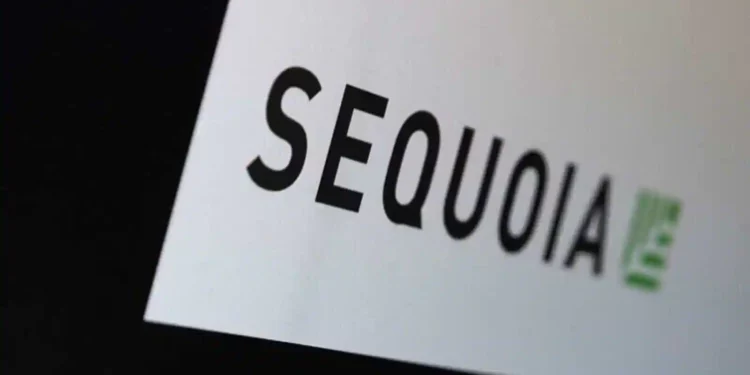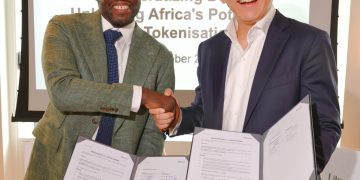Sequoia-backed Wave takes on telcos in Africa mobile-money war
Mobile money agents in Ivory Coast halted service for Wave Mobile Money Inc. few weeks ago, in an attempt to stymie the growth of the young fintech gobbling up market share across West Africa.
The agents –- brokers who enable unbanked people to store and send money through cellphones –- were unhappy with their commissions and expected the suspension to severely cripple the company’s business. Instead, Wave had one of its best weeks since launching three years ago in West Africa’s third-biggest economy. “Transactions spiked for a couple of hours,” said Katier Bamba, the company’s general manager for Ivory Coast.
The money transfer app came out unscathed because, unlike telecommunications companies which use intermediaries to manage agents, Wave maintains direct relationships with individual agents. That allowed it to keep doing business as usual.
It wasn’t the first time that the five-year-old fintech has upended the industry. When Wave first launched in Senegal in 2018, it took on the local unit of French telecommunications giant Orange SA, forcing the latter to cut prices to compete.
Now, with a new e-money license at its disposal, Wave is expanding its services, becoming the first non-telco, non-bank with the ability to facilitate small-and-medium sized lending, and to issue micro-credit and virtual credit cards in eight countries in Francophone West Africa independent of a financial institution.
With this, the region’s already fierce mobile money wars are heating up.
Grow Fast, Die Slow
None of this would be possible without M-Pesa, the original mobile transfer operator. Launched in Kenya in 2007, the Safaricom Plc product is how people across the continent do business. But in contrast to East Africa, where M-Pesa revolutionized the market, West Africa was until recently far less competitive. Wave spotted an opportunity.
In Senegal, Wave’s primary market, only 17% of people have a bank account, but nearly half of adults use mobile money services. In West Africa, mobile money usage saw a 60% increase over the previous year, hitting $239.3 billion in transactions. But with more players competing, the market is getting tighter.
A showcase for this is Dakar’s downtown commercial district, where colorful stickers for mobile money companies reflect changes in the national market. There’s the red-and-white logo for YUP, the Société Générale SA app that canceled its service earlier this year. There’s the orange of Kash-Kash, the app launched by a local fast-food entrepreneur, which never really took off. Then there’s Wave’s trademark sky blue.
To take control of the market, Wave co-founders Drew Durbin and Lincoln Quirk raised $200 million in 2021 — then (and still) one of Africa’s largest fund-raising rounds — from investors including Sequoia, Stripe, Founders Fund and Paretch Africa. This was on top of the half-billion dollars they made selling their first company, the remittance startup Sendwave, to Worldremit. Wave soon became the most-used app in Senegal, and with a $1.7 billion valuation, Francophone West Africa’s first and only unicorn.
What Comes Next
As with many VC-funded startups, the company’s future might come down to the length of its runway — or how soon it can turn a profit. In June, amid a global slowdown in investment, Wave fired 15% of its staff in Mali, Burkina Faso and Uganda, and pared back an aggressive plan for expansion. The following month, it took a 90 million euro syndicated loan from the World Bank Group’s International Finance Corp. It also quietly expanded into Gambia.
The battle to the bottom of transaction fees has incurred other costs. In April, Orange’s Middle East and Africa Chairman, Alioune Ndiaye, accused Wave of destroying 20,000 jobs in Senegal by reducing mobile money agents’ take-home earnings. Additionally, mobile money operators’ aggressive focus on smartphone users has created concern that poorer users might be left behind.
“There is a race to get these app users because they are higher-value customers,” said Ashley Onyango, head of financial inclusion at GSMA.
The more immediate question is how Wave will continue to expand beyond its partnerships with four of Senegal’s biggest banks –- Ecobank Transnational Inc., Societe General, Oragroup SA and United Bank for Africa Plc. Clues might be found in its new financial services or arrangements with Auchan Holding SA and Casino Guichard-Perrachon SA, two of the country’s largest supermarkets.
While it’s clear to many that fintechs like Wave will shape the future of money in Africa, how exactly they’ll do so is an open question.
“Once you have the client base you can easily add other services, such as insurances, e-commerce, entertainment platforms or even education,” observed Souleymane Gning, founder of digital broker Assuraf Assurance who previously consulted for Orange and MTN Group Ltd. in West Africa. “Cash-in, cash-out in itself isn’t profitable. Then it could just be an ATM.”








